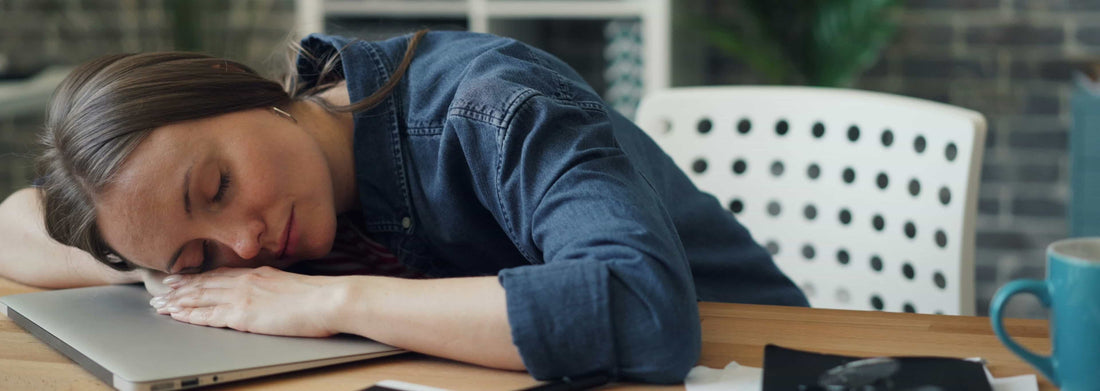Natural sleep aids are particularly well-suited for those with anxiety, as they often have a dual-action approach: inducing relaxation and calming the mind. Supplements, herbs, and lifestyle practices are popular options, often carrying fewer side effects than prescription medications. Here are some of the best options for adults dealing with anxiety-related insomnia.
- Magnesium
Magnesium is essential for many bodily functions, including nerve transmission and muscle relaxation, which are critical for easing tension and promoting restful sleep. By increasing the availability of gamma-aminobutyric acid (GABA) in the brain, magnesium helps to calm the nervous system, which can alleviate both anxiety and insomnia. Many people find that taking magnesium in the evening, through either supplements or magnesium-rich foods, promotes calmness and reduces anxious thoughts before bedtime.
- Melatonin
Melatonin is a naturally occurring hormone that regulates the sleep-wake cycle. While not specifically designed for anxiety, it can be effective for individuals whose anxiety causes sleep disruptions. For those struggling with sleep onset due to a racing mind, melatonin helps align the circadian rhythm with bedtime, which encourages sleepiness. Unlike traditional sleep medications, melatonin does not produce dependency, making it safe for extended use in adults with anxiety.
- L-theanine
L-theanine is an amino acid found in tea leaves known for its relaxation effects. Unlike other sleep aids, L-theanine works subtly by promoting a state of calmness without sedation. Studies have shown that it can reduce stress, anxiety, and sleep disturbances by increasing alpha brain waves, which are linked to a relaxed yet alert state. L-theanine is especially helpful for those whose anxiety keeps them awake without feeling physically restless.
- Valerian Root
Valerian root is an herbal remedy known for its mild sedative effects, traditionally used to address insomnia and anxiety. Research suggests valerian root may be effective at reducing the time it takes to fall asleep and improving sleep quality. It works by increasing the availability of GABA in the brain, similar to how anti-anxiety medications function. While valerian root has a gentle effect, it is best used consistently to achieve the best results over time.
Lifestyle-Based Sleep Aids
Natural supplements are not the only way to address sleep issues caused by anxiety. Certain lifestyle practices also contribute to better sleep and help calm the mind. Incorporating these practices into a bedtime routine can greatly enhance the effectiveness of natural sleep aids.
- Mindfulness Meditation
Meditation is one of the most effective techniques for managing anxiety and improving sleep quality. Studies indicate that mindfulness-based practices help regulate the brain’s response to stress by increasing awareness and promoting relaxation. Simple techniques, such as guided meditations or progressive relaxation exercises, can help shift the mind from racing thoughts to a calm state.
- Breathing Exercises
Practices like deep breathing and box breathing (inhaling for four counts, holding for four, exhaling for four, and holding again) are powerful tools for calming the nervous system. Deep breathing activates the parasympathetic nervous system, lowering heart rate and reducing anxiety levels. Engaging in these exercises before bed can serve as a sleep aid by slowing down anxious thoughts and preparing the body for restful sleep.
- Aromatherapy
Aromatherapy, specifically with essential oils such as lavender and chamomile, is another natural way to promote relaxation and ease anxiety. Studies have shown that inhaling lavender, for instance, can increase slow-wave sleep (the deep sleep that helps us feel refreshed) and alleviate symptoms of anxiety. Using a diffuser with a few drops of lavender oil in the evening can create a calm, sleep-promoting environment.
Over-the-counter (OTC) Options for Anxiety-Induced Insomnia
For some adults, natural remedies may not provide enough relief, and they may need an extra level of support from over-the-counter (OTC) sleep aids. These should be used cautiously and as directed, as they can carry side effects and may interact with other medications.
- Diphenhydramine
Diphenhydramine is an antihistamine commonly found in allergy medications and certain sleep aids. While not specifically designed for anxiety, its sedative properties can help ease the physical symptoms of anxiety, allowing for sleep. It is generally used as a short-term solution, as long-term use may lead to dependence or diminished effectiveness.
- Doxylamine
Another antihistamine, doxylamine, is often used to aid sleep due to its sedative effects. Like diphenhydramine, it is best used occasionally rather than as a daily remedy, as prolonged use can lead to tolerance. While it may not directly address anxiety, doxylamine can help those who struggle with the physical restlessness associated with anxiety.
Choosing the Best Option
Identifying the most effective sleep aid for anxiety involves considering the root causes of sleeplessness, any other medications or supplements being taken, and individual preferences for natural vs. OTC solutions. Consulting with a healthcare provider, especially when introducing new supplements or medications, ensures safe, effective choices tailored to individual needs.
Combining Techniques for Optimal Rest
While individual sleep aids can be beneficial, combining multiple techniques often yields the best results. Many adults with anxiety find success by blending one or two natural supplements with lifestyle practices, such as evening meditation or aromatherapy. Creating a calming bedtime routine that includes these elements may enhance the quality of sleep.
Final Thoughts on Anxiety and Sleep
For adults struggling with anxiety and insomnia, achieving quality sleep may seem challenging but is entirely possible. Natural sleep aids like magnesium, melatonin, and L-theanine offer gentle support, while lifestyle practices like meditation and aromatherapy provide a calming foundation. Over-the-counter options, used sparingly, can also offer short-term relief. A tailored approach, combining these methods, allows for the effective management of anxiety-related sleep disturbances, empowering individuals to reclaim restful, restorative sleep.

